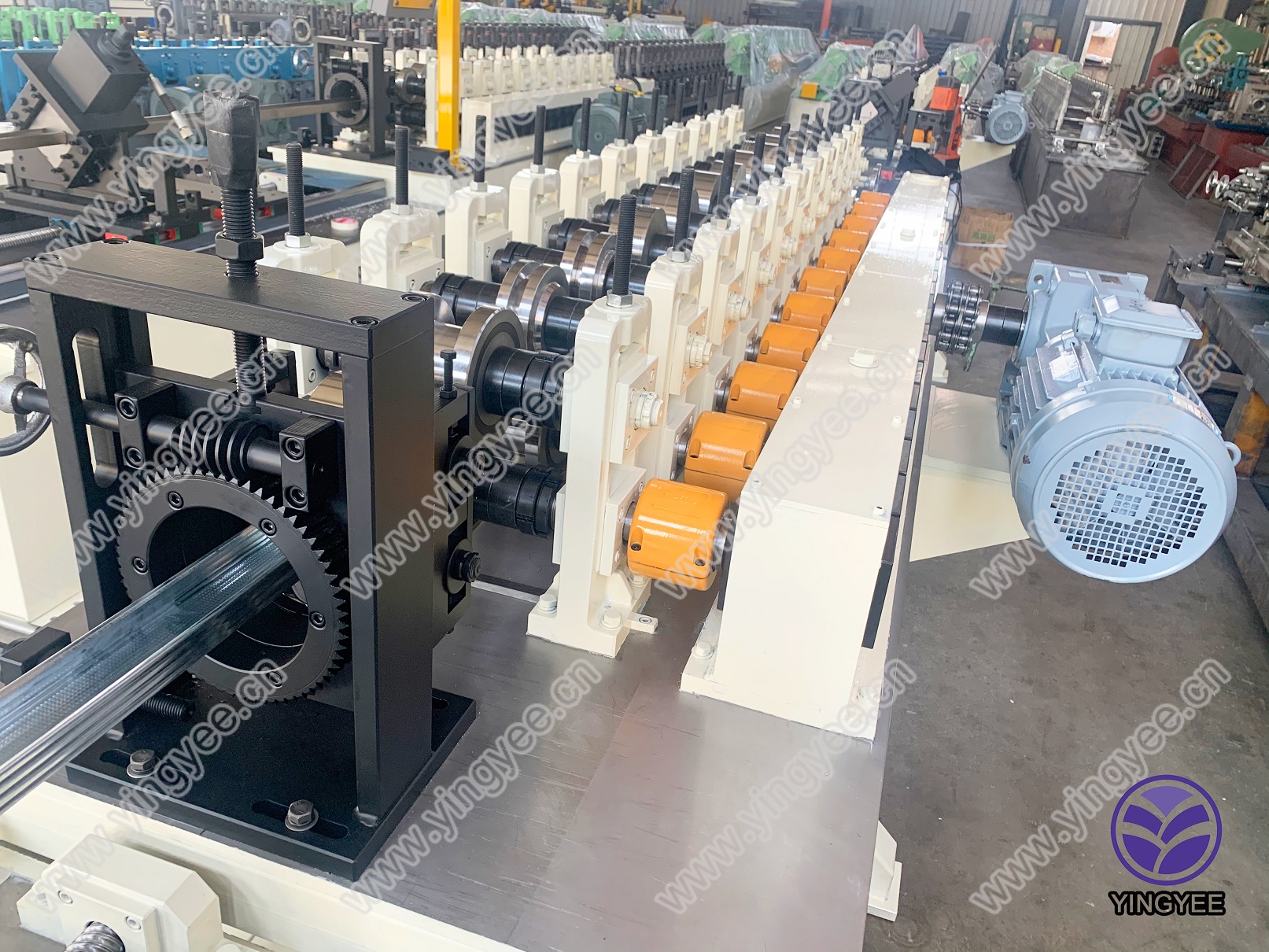The Ceiling T Bar Roll Forming Machine Revolutionizing Construction and Design
In the fast-paced world of construction and interior design, efficiency and precision are paramount. One of the unsung heroes contributing to these demands is the ceiling T bar roll forming machine. This machine has transformed the way metal T bars are produced, providing innovative solutions for ceiling systems that are both aesthetically pleasing and structurally sound.
Understanding the Ceiling T Bar
Before delving into the specifics of the roll forming machine, it's essential to understand what a ceiling T bar is and its role in modern architecture. Ceiling T bars, also known as T grids, are the support framework for drop ceilings, which are commonly used in commercial space design. They allow for easy installation of ceiling tiles, facilitate access to overhead utilities, and enhance the acoustic properties of a room.
The Need for Precision and Efficiency
Traditionally, manufacturing these T bars involved labor-intensive processes, which not only increased production costs but also led to inconsistencies in quality. As the demand for high-quality ceilings in both commercial and residential buildings rose, the limitations of these traditional methods became evident. Manufacturers sought a solution that could streamline production while maintaining accuracy. This need paved the way for the innovation of the ceiling T bar roll forming machine.
How the Ceiling T Bar Roll Forming Machine Works
The ceiling T bar roll forming machine is an advanced piece of technology that automates the production of ceiling T bars. The process begins with a continuous feed of metal strip—typically made of galvanized steel or aluminum—into the machine. The roll forming process involves bending and shaping these strips into the desired profile using a series of rollers.
What sets this machine apart is its ability to produce T bars at high speeds without sacrificing quality. The precision engineering of the rollers ensures that each bar has consistent dimensions and a smooth finish, making them ready for immediate installation. Furthermore, the machine can be custom-designed to create various profiles according to specific project requirements, enhancing its versatility in the marketplace.

Benefits of Using a Ceiling T Bar Roll Forming Machine
1. Increased Production Efficiency The roll forming machine significantly reduces the time required to manufacture ceiling T bars. What might have taken hours or even days with traditional methods can now be accomplished in a fraction of the time, allowing manufacturers to meet tight deadlines.
2. Cost-Effectiveness With reduced labor and quicker production times, businesses can save on operational costs. The ability to produce T bars in bulk without compromising on quality also means that manufacturers can offer competitive pricing to their clients.
3. Customization Options The demand for unique design elements in ceiling systems is on the rise. The roll forming machine allows for intricate designs and custom sizes, enabling manufacturers to cater to various aesthetic preferences and architectural needs.
4. Reduced Waste Traditional manufacturing processes often generate a significant amount of scrap metal. The precision of the roll forming technique minimizes waste, promoting more sustainable practices in manufacturing.
5. Ease of Use and Maintenance Modern roll forming machines are designed for user-friendliness and ease of maintenance. Operators can be trained quickly, and routine maintenance checks are simplified, ensuring productivity remains high.
Conclusion
The ceiling T bar roll forming machine stands as a testament to technological advancement in the construction industry. Its ability to produce high-quality, aesthetically appealing ceiling T bars at rapid speeds and lower costs has revolutionized how manufacturers operate. As the industry continues to evolve, the demand for innovative solutions like the roll forming machine will only increase.
Incorporating this technology into production processes not only meets the rigorous demands of modern construction projects but also elevates the standards for quality and design. As we move toward a more sophisticated architectural landscape, machines like the ceiling T bar roll forming machine will play a crucial role in shaping the future of building design and construction. Whether for commercial or residential applications, this technology is perfectly positioned to support the ever-changing needs of the industry.